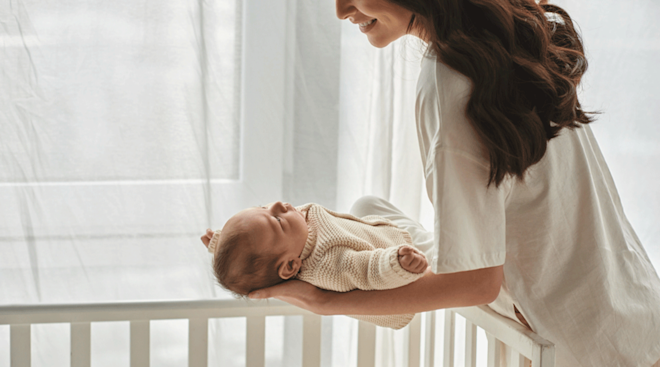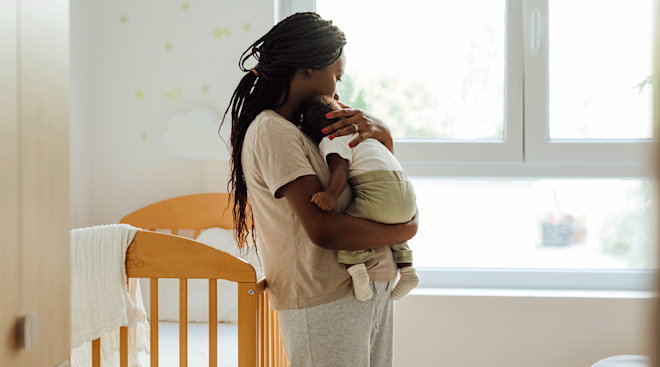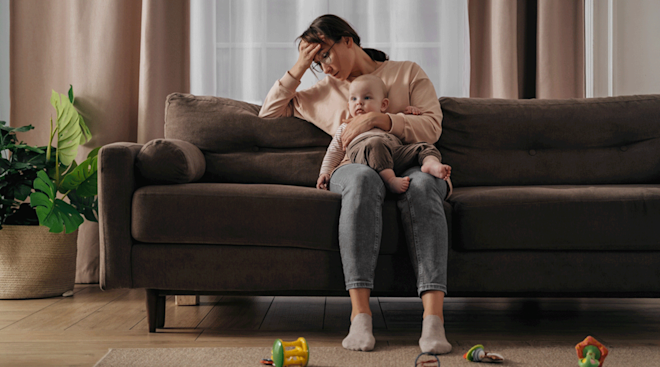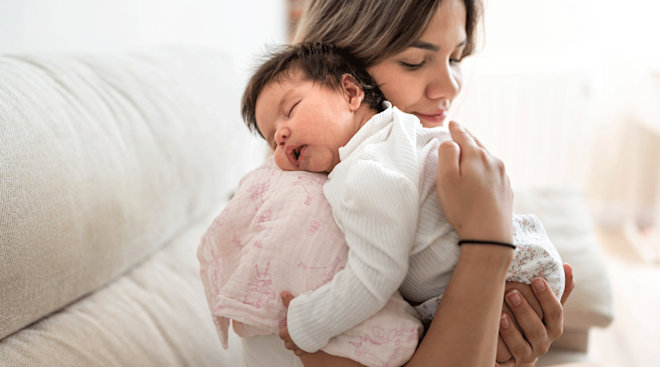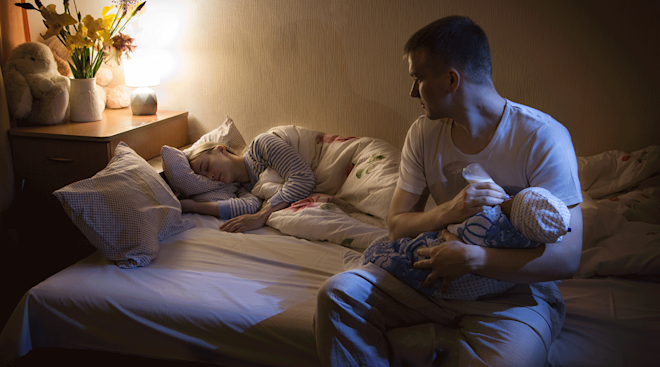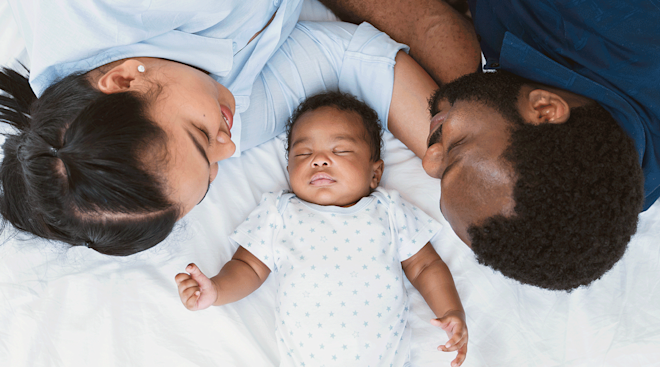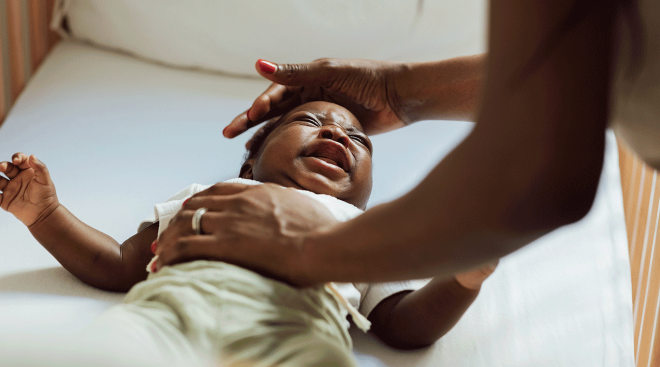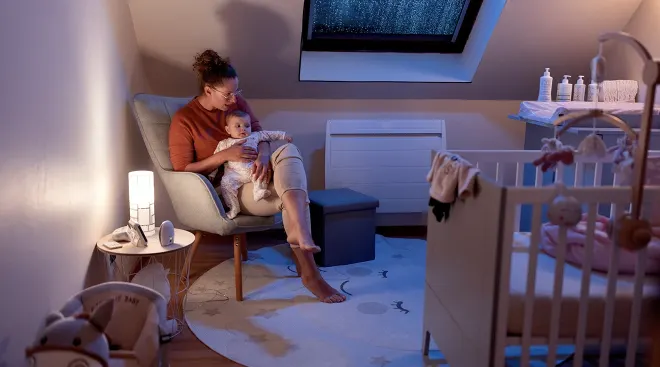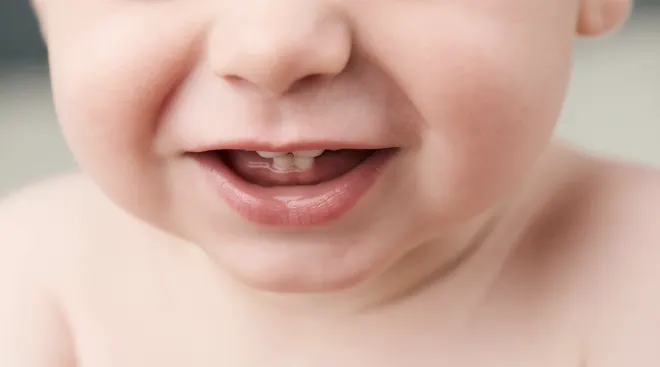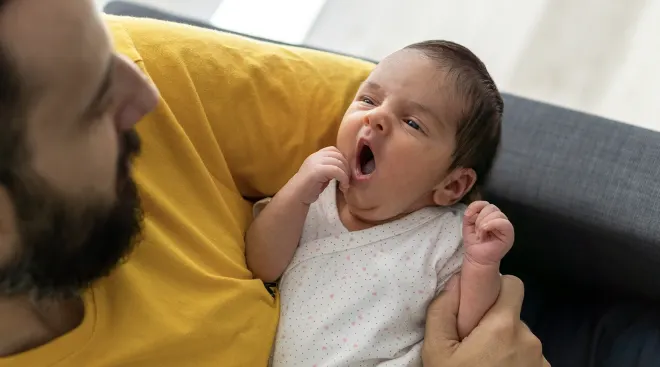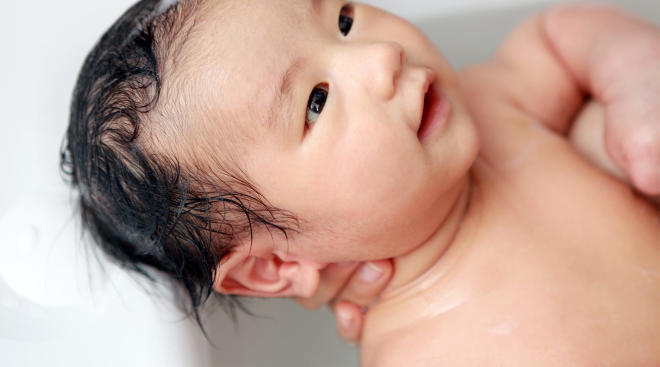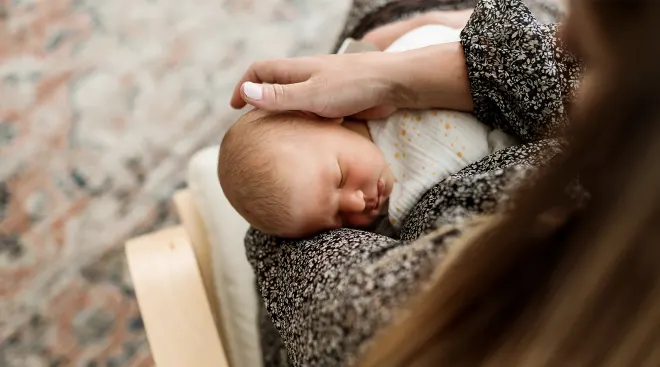Why Is Baby Such a Loud Sleeper?
Whoever came up with the phrase “sleep like a baby” clearly never slept anywhere near a newborn. Don’t let that tiny body fool you — infants can crank out a symphony of noises that can rouse even the heaviest of sleepers. Actually, it might be less like a symphony and more like a buzz saw.
So what’s behind all the grunting, groaning and gurgling? “Newborn babies breathe through their noses, which allows them to eat and breathe at the same time,” explains Samar Bashour, a pediatrician at Cleveland Clinic Children’s Hospital. “As tiny as their noses are, the air passages inside them are even smaller, and little particles of mucus can further constrict them, causing crazy grunts, groans, whistles and squeaks. You might also hear whimpers, laughs, cries or yells — the baby equivalent of sleep talking.”
The surprising sounds often crop up around the second week of life and can last until she’s six months old — when baby starts to spend more time in REM sleep. This can feel like an eternity when you’re listening to every creak and cough coming from the crib, wondering if baby’s okay. Call the doctor if you’re concerned, but the good news is, there are some easy and harmless explanations to common nighttime noises:
• Rattling. There’s mucus in his nose, clogging things up.
• Whistling. Small pieces of mucus or dried milk are constricting baby’s airways.
• Gurgling. “He’s just clearing his throat,” Bashour says.
• Deep raspy breathing. “Most often this is caused by a harmless condition called tracheomalacia, where the tissues of the trachea are soft and flexible and make noise when the infant breathes in and out,” she explains. You’ll notice the noise is louder when baby is lying on his back and improves when you pick him up or he’s sitting upright. Baby will grow out of it.
On the other hand, definitely call the pediatrician if you hear any of these:
• Hoarse cry or a barking cough. This could be either croup or a sign there’s a blockage in his windpipe, both of which can interfere with his breathing.
• Deep cough. This is caused by a blockage in the large bronchi, or divisions of the windpipe that lead into the lung, Bashour says.
• Wheezing. It’s can be caused by bronchiolitis or asthma, and makes a whistling sound when baby breathes in and out.
• Persistent grunting. When you hear a little grunting noise at the end of each breath, that’s baby struggling to open up blocked airways. That could be caused by something like pneumonia, bronchiolitis or asthma.
Please note: The Bump and the materials and information it contains are not intended to, and do not constitute, medical or other health advice or diagnosis and should not be used as such. You should always consult with a qualified physician or health professional about your specific circumstances.
Plus, more from The Bump:
Navigate forward to interact with the calendar and select a date. Press the question mark key to get the keyboard shortcuts for changing dates.

































